
Bebop or bop is a style of jazz developed in the early to mid-1940s in the United States. The style features compositions characterized by a fast tempo, complex chord progressions with rapid chord changes and numerous changes of key, instrumental virtuosity, and improvisation based on a combination of harmonic structure, the use of scales and occasional references to the melody.

Earl Rudolph "Bud" Powell was an American jazz pianist and composer. A pioneer in the development of bebop and its associated contributions to jazz theory, Powell's application of complex phrasing to the piano influenced both his contemporaries and later pianists including Walter Davis Jr., Toshiko Akiyoshi, and Barry Harris.
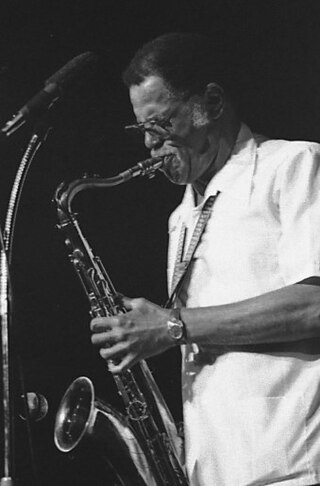
Dexter Gordon was an American jazz tenor saxophonist, composer, and bandleader. He was among the most influential early bebop musicians. Gordon's height was 6 feet 6 inches (198 cm), so he was also known as "Long Tall Dexter" and "Sophisticated Giant". His studio and performance career spanned more than 40 years.

Round Midnight is a 1986 American musical drama film directed by Bertrand Tavernier and written by Tavernier and David Rayfiel. It stars Dexter Gordon, with a soundtrack by Herbie Hancock. The title comes from Thelonious Monk's 1943 composition "'Round Midnight", which is featured in this film in a Hancock arrangement.

Dillon "Curley" Russell was an American jazz musician, who played bass on many bebop recordings.
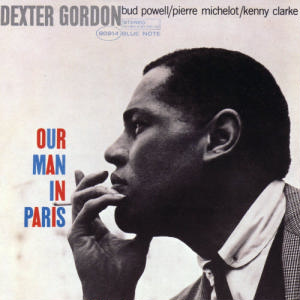
Our Man in Paris is a 1963 jazz album by saxophonist Dexter Gordon. The album's title refers to where the recording was made, Gordon teaming up with fellow expatriates Bud Powell and Kenny Clarke, both Parisian residents, and native Parisian Pierre Michelot. Powell, Clarke and Michelot, under the name The Three Bosses, had played together often in Paris since Powell moved there in 1959.
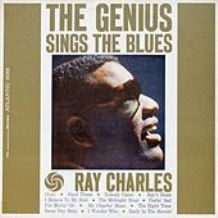
The Genius Sings the Blues is an album by Ray Charles, released in October 1961 on Atlantic Records. The album was his last release for Atlantic, compiling twelve blues songs from various sessions during his tenure for the label. The album showcases Charles's stylistic development with a combination of piano blues, jazz, and southern R&B. The photo for the album cover was taken by renowned photographer Lee Friedlander. The Genius Sings the Blues was reissued in 2003 by Rhino Entertainment with liner notes by Billy Taylor.

Groovin' High is a 1955 compilation album of studio sessions by jazz composer and trumpeter Dizzy Gillespie. The Rough Guide to Jazz describes the album as "some of the key bebop small-group and big band recordings."
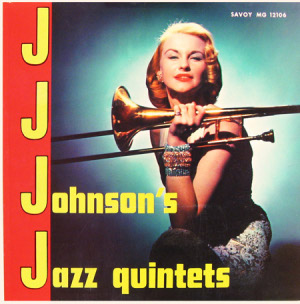
J. J. Johnson's Jazz Quintets is a studio album by jazz trombonist J. J. Johnson, released by Savoy Records, containing material from three different recording sessions in 1946, 1947 and 1949. Material from the first two sessions had been previously released on two Savoy EPs, New Trends In Jazz, Vol. 11 and Birth of Bop, Vol. 3. The album was re-issued on CD in 1992, and again in 1994 on the Savoy Jazz label.
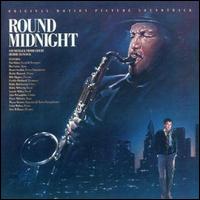
Round Midnight is a soundtrack album by Herbie Hancock featuring music recorded for Bertrand Tavernier's film Round Midnight released in 1986 on Columbia Records. The album features performances by Hancock, trumpeter Freddie Hubbard, bassist Ron Carter, drummer Tony Williams, vocalist Bobby McFerrin, tenor saxophonist Dexter Gordon, bassist Pierre Michelot, drummer Billy Higgins, guitarist John McLaughlin, trumpeter/vocalist Chet Baker, vibraphonist Bobby Hutcherson, saxophonist Wayne Shorter, vocalist Lonette McKee, and pianist Cedar Walton, most of whom appear in the film. It won the Academy Award for Best Music, Original Score in 1986, beating Ennio Morricone's The Mission and Jerry Goldsmith's Hoosiers, among others. Additional music recorded during the making of the film was released under Dexter Gordon's name as The Other Side of Round Midnight (1986).
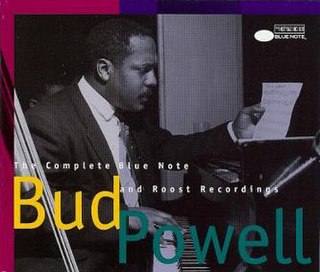
The Complete Blue Note and Roost Recordings is a four-disc box set by American jazz pianist Bud Powell compiling his recordings as leader for Blue Note, and two early sessions for Roost, released by Blue Note on October 4, 1994.
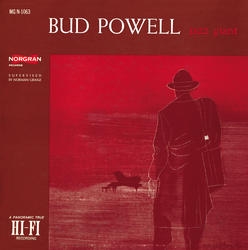
Jazz Giant is a studio album by jazz pianist Bud Powell, released on Norgran in 1950, featuring two sessions that Powell recorded for Norman Granz in 1949 and 1950.
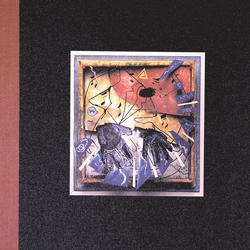
The Complete Bud Powell on Verve is a five-disc box set, released on September 27, 1994, by Verve Records, containing all of jazz pianist Bud Powell's recordings as leader for producer Norman Granz.
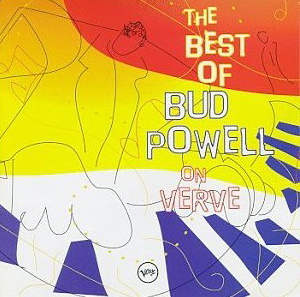
The Best of Bud Powell on Verve is a selection of jazz pianist Bud Powell's recordings for Verve Records, released on August 23, 1994.
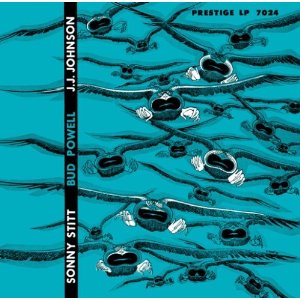
Sonny Stitt/Bud Powell/J. J. Johnson is an album by saxophonist Sonny Stitt compiling tracks recorded with trombonist J. J. Johnson or pianist Bud Powell in 1949–50 and released on the Prestige label in 1957. The 1990 CD reissue added five bonus tracks to the original LP. The cover art was done by cartoonist Don Martin of MAD magazine fame.
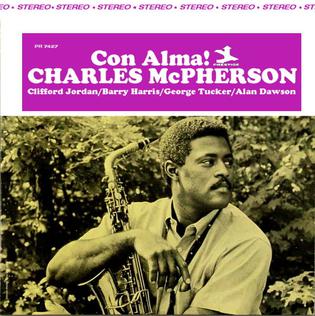
Con Alma! is the second album led by saxophonist Charles McPherson recorded in 1965 and released on the Prestige label.
James Theodore Powell was an American jazz saxophonist who played alto sax.

The Charlie Parker Story is an LP record by Charlie Parker, released posthumously by Savoy Records. While many of the tracks on this album had been previously released on other formats, this is the first album that chronicles the entire session, recorded November 26, 1945, including all takes of all pieces. This session is famous in that it is the first recorded under Parker's name. It is also controversial, in that to this day it is unclear who the pianist and trumpet player are on all of the tracks.
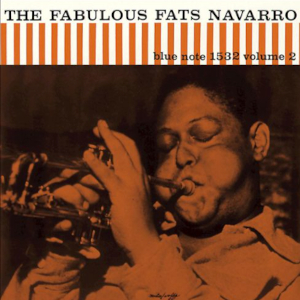
The Fabulous Fats Navarro, Vol. 2 is a studio album by Fats Navarro and released posthumously by Blue Note Records. Personnel varied through the studio sessions that made up the album but among the most notable were Wardell Gray, Bud Powell, and Howard McGhee.


















